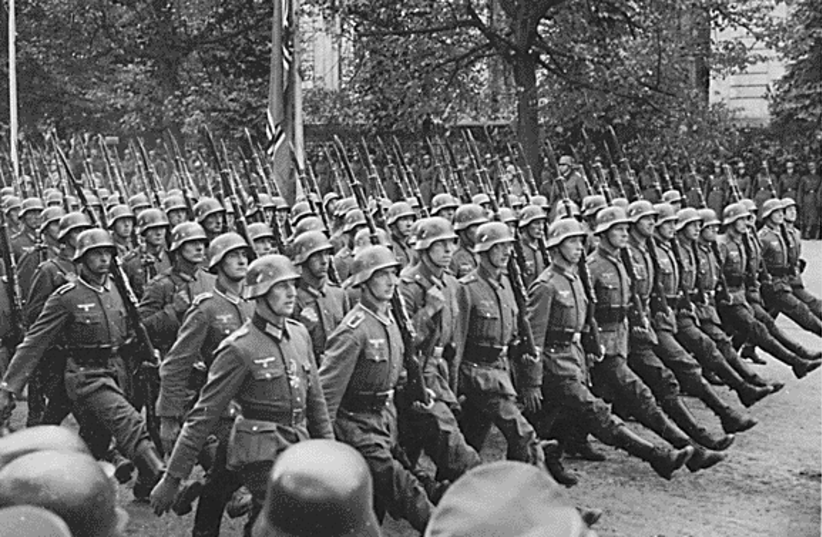I have never been to Dushanbe, the capital of Tajikistan, so I cannot technically return there.
However, my late father, born in Ulanow, Poland, was in Dushanbe, then called Stalinabad, during WW II.
I grew up in Brooklyn, New York, knowing very little about my father’s Holocaust experiences. The Cold War was going on at the time, and the Soviet Union was our mortal enemy. The atomic bomb spies, Ethel and Julius Rosenberg, had recently been electrocuted, and (shudder) we had the same surname as the people who had “stolen the bomb.”
The last thing my father wanted was for me to go to school and talk about his having been in the USSR.
He was in his late 80s before I got the whole story.

A family's story from Poland to the USSR amid the Holocaust
When the war started on September 1, 1939, his town, situated at the confluence of the San and Tanew rivers in southeast Poland, was attacked from the air by the Germans. His sister later told me that she had been at the dentist’s with her father and had looked up and seen the low-flying planes.
“You had dentists?” I asked incredulously was my take-away.
“Of course we had dentists. We had doctors and lawyers, too.”
“I thought you lived in huts.”
She laughed.
I later learned that their family story was infinitely more complex than I had imagined, and it reflected the violently changing landscape of political and military Europe.
In the first weeks of the war, the Russians and the Germans raced to divided Poland, and their town wound up being occupied by the Russians.
One night, a Yiddish-speaking Russian soldier knocked on my father’s family’s door and said, “We’re withdrawing in the morning. If you know what’s good for you, you’ll come with us.”
The family left.
(This is a shorthand version. They were actually rescued by my father’s 17-year-old brother, who walked 80 miles back to the town after the men had left, believing that only men would be imprisoned and conscripted for forced labor. His brother hired a wagon and driver, loaded up his mother, sisters, youngest brother, an aunt and her four children and crossed the Tanew river on a raft. Bullets were whizzing over their heads. My dad said his brother was mute for weeks afterwards.)
Once reunited, they traveled to a small town near Lvov, where life assumed a degree of normalcy. My aunts attended school and even acted in plays.
Then, about 16 months later, they received another nighttime knock on the door.
It was the KGB.
They were being deported eastward.
They rode in a cattle car for six weeks and arrived in Novosibirsk, Siberia, in 1941 as winter was approaching.
The Russians placed them in unheated former army barracks.
A few months later, they were sent to the Urals. The men and young people were compelled to work. Not to work was considered an economic crime that was punishable by prison.
My father and his family cut lumber.
The cold and starvation were nearly unbearable.
In 1942, they were suddenly released.
They decided to go “somewhere warm” and chose Tajikistan.
They traveled in cattle cars once again and landed in Kajtaz, a hot, dusty town.
One day, the first secretary of the Communist Party of Tajikistan, Dmitri Protopovov, arrived in Kajtaz, met my father and asked him to be his chauffeur and bodyguard.
My father and his family moved to Stalinabad (Dushanbe), where they lived among ethnic Russians, Tajiks, Muslims, and Bukharian Jews.
Upon the defeat of Germany, the first secretary called my father to his office.
“We like you very much and want you to stay in the Soviet Union.”
My father, all of 25, said, “I learned so much about the glories of communism, that I want to go back and teach it to the Polish people.”
What was Protopovov going to say? That communism wasn’t glorious and that the large omnipresent portraits of “Uncle Joe” weren’t representations of a benevolent leader?
He let them go.
My father threw away his Order of Stalin medal.
Now, so many decades later, I wanted to “return” to Dushanbe as a representative of my family (the non-espionage practicing ones) to say (metaphorically), “Here I am. We survived.”
But something within the Russian heart (a longing for the reinstitution of the USSR?) and an inability to accept the world’s gratitude for what they did sacrifice (20 million dead) during the war (even though they were, to some degree, responsible for enabling Germany) have caused Putin, inbred KGB man that he is, to attack Ukraine.
My father loved the Russian language.
He thought it was expressive and poetic.
He knew that Russian people had offered him an opportunity to survive the war, and he appreciated it.
He also knew that communism was a brutal fraud and that it destroyed personal freedom, motivation and family relationships.
So, I may never get to Dushanbe, but in a way I have “returned” there.
Like my father, I have seen the flick of history’s Leviathan tail and I, too, have learned that life is to be welcomed and embraced. ■
